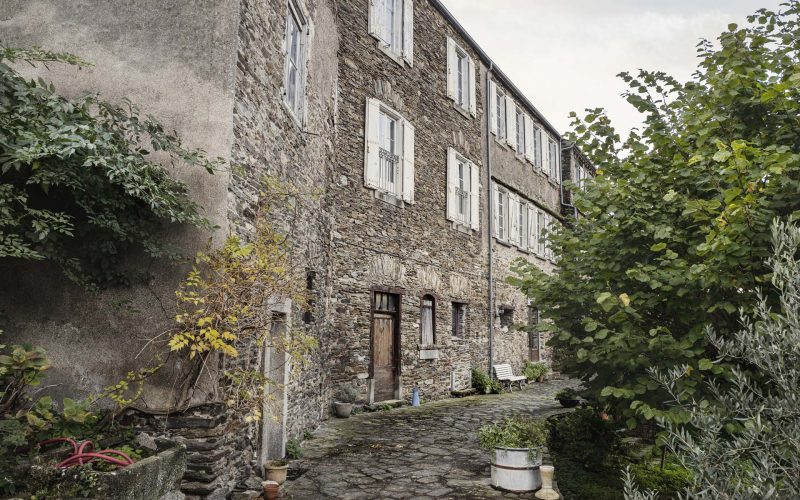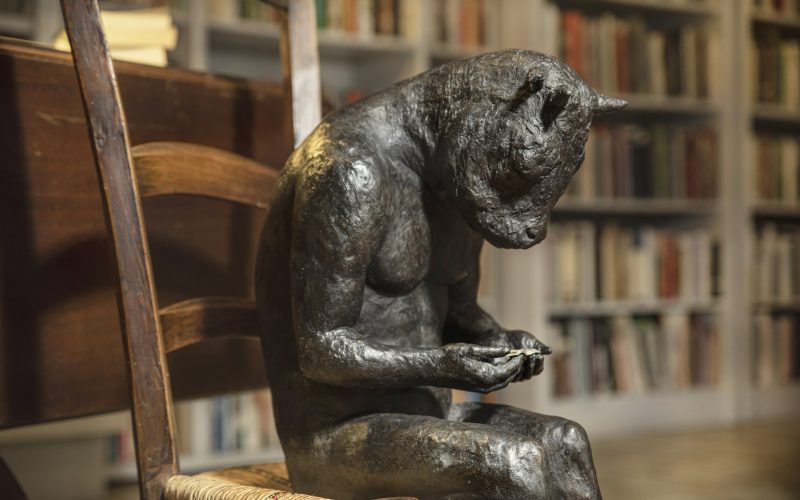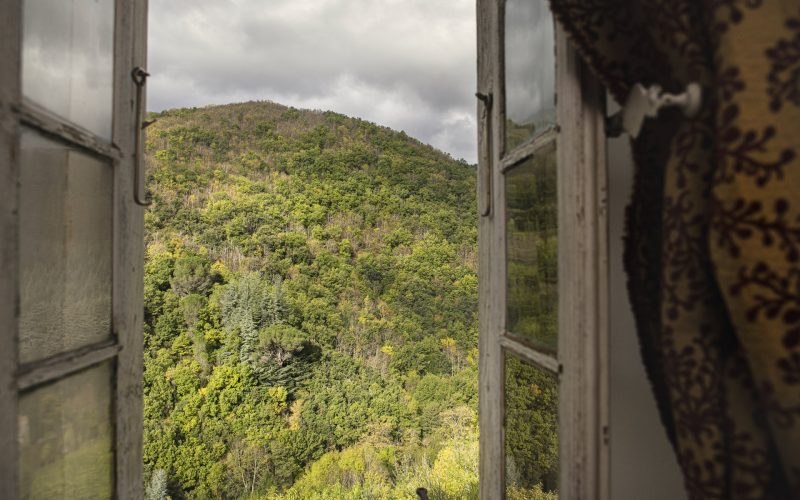La Muse is first and foremost a large old house nestled in the heart of a village in the Montagne Noire, north of Carcassonne. The ten rooms all overlook a densely wooded valley, a vast and soothing landscape, which promotes concentration. There is a sunny terrace in the afternoon that runs along the building and a small shaded garden to stay cool in the summer. In the library, exchanges and conversations in all languages often are heard in front of the fire. Adjacent to a Gothic, pastel chapel, the artists’ studio sometimes turns into an exhibition space at the end of a residence. And both kitchens are places to share recipes and laughs.
A place...


...of creation…
At La Muse, you come to write, paint, draw, photograph, compose a concerto or a song… It is also the ideal place to reflect on a project, imagine a novel, complete a doctoral thesis, be inspired by nature or its readings and explore new ways of being. Everyone is free, without constraints, to write a hundred pages a day or to dream of the perfect canvas, to spend their days alone or to share the creative energy of other residents, to go to mushrooms in the undergrowth or to (re)read the seven volumes of In Search of Lost Time.
…suspended in time
Time at La Muse takes on another dimension: it hangs and threads. It’s a strange sensation, but very quickly we forget the days and hours. The bell of the town hall may remind us that they are moving forward, but we pay little attention to them, we are immersed in our own time. One week is enough to feel this temporal suspension, but it takes three or four to live it to the fullest. It is then that the mind opens up to become more receptive to the world and its inner creative force. “We must give time to time,” Cervantes told Don Quixote. Give yourself time to La Muse, she will give it back to you generously!

Alain, the guardian of the place
Once a doctor, a novelist in my spare time, I now dabble with my love of literature, music, cinema, philosophy and the visual arts.